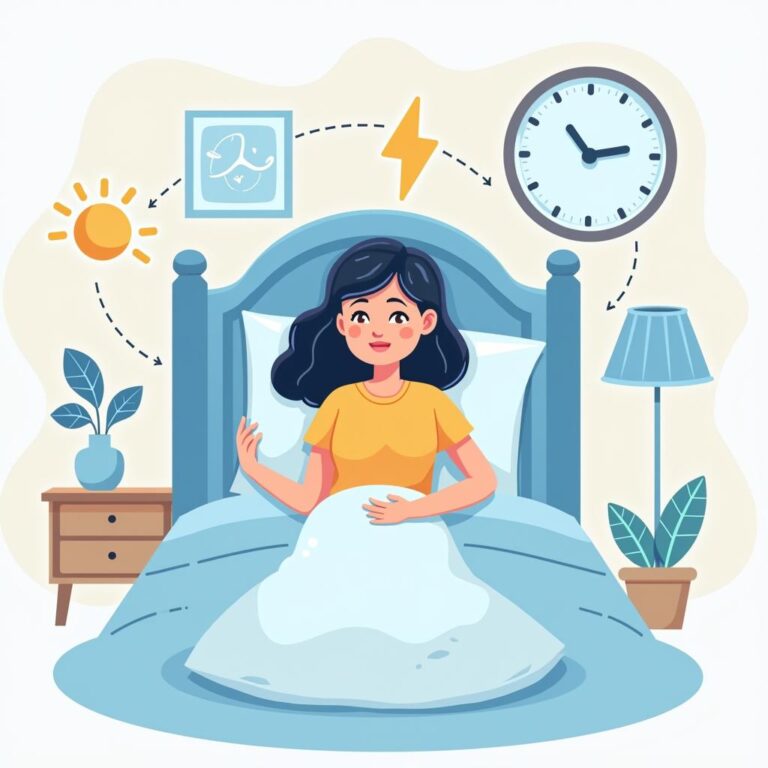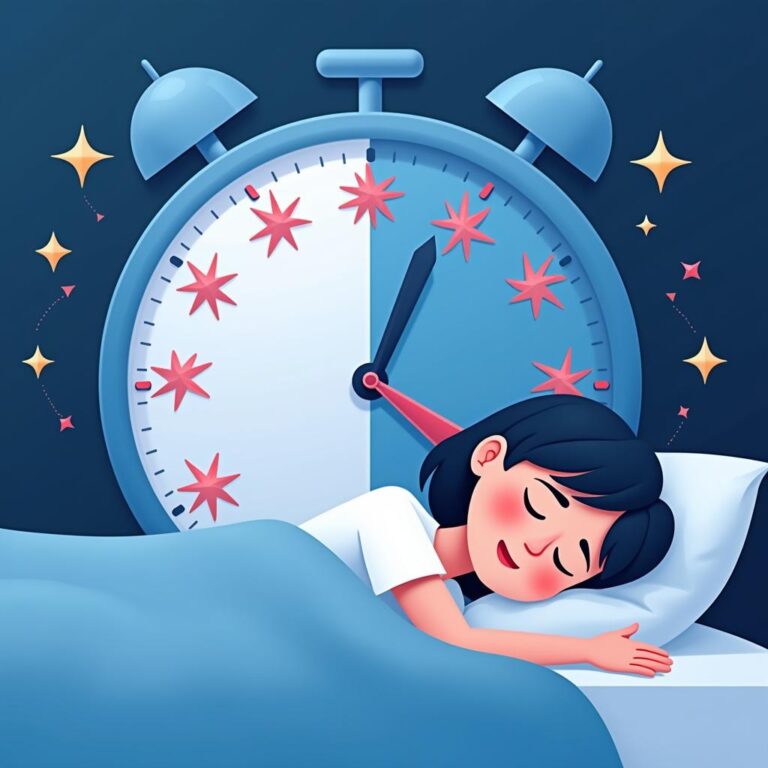Introduction to Deep Sleep
Understanding deep sleep is crucial for anyone looking to enhance their overall health and wellness. It is during this phase of sleep that the body engages in essential recovery processes, from physical repair to mental rejuvenation. Often underestimated, deep sleep is a vital component of the sleep cycle, marked by slower brain waves and decreased body activity. Thus, it’s essential to delve into its significance and understand the role it plays in recovery.
What is Deep Sleep?
Deep sleep, also referred to as slow-wave sleep (SWS), is one of the stages of non-REM (NREM) sleep. It typically occurs in the first half of the night and constitutes about 13-23% of total sleep in adults. During this stage, the body becomes less responsive to external stimuli, heart rate and breathing slow down, and brain waves display a characteristic pattern of high amplitude and low frequency.
Characteristically, deep sleep is divided into two stages:
– **Stage 3**: This is the first phase of deep sleep, where the body transitions from light sleep to the deeper state.
– **Stage 4**: This is the deepest form of sleep, often referring to the most restorative processes.
The Sleep Cycle and Deep Sleep
Every night, an individual goes through several sleep cycles, each lasting about 90-120 minutes. Each cycle comprises various stages:
– Stage 1: Light sleep
– Stage 2: Onset of true sleep
– Stage 3: Deep sleep
– Stage 4: Deepest sleep
– REM (Rapid Eye Movement) Sleep: Associated with dreaming
Deep sleep typically occurs in the first few cycles of the night. The older we get, the less deep sleep we tend to experience, which may contribute to various health issues.
The Role of Deep Sleep in Recovery
Deep sleep plays a pivotal role in various aspects of recovery:
Physical Recovery
During deep sleep, the body undergoes several physical recovery processes:
– **Muscle Repair and Growth**: Human Growth Hormone (HGH) is released during deep sleep, facilitating muscle growth, tissue repair, and overall recovery from physical exertion.
– **Reduced Inflammation**: Deep sleep helps reduce inflammation and promotes healing, particularly important for athletes and actively engaged individuals.
– **Immune Function Enhancement**: The immune system benefits from deep sleep, as cytokines and antibodies are produced to fight off infections and diseases.
Mental Recovery
The benefits of deep sleep extend beyond the physical realm:
– **Cognitive Function**: Deep sleep is essential for memory consolidation, aiding learning and retention of information built throughout the day.
– **Emotional Regulation**: Proper deep sleep mitigates stress and emotional disturbances. Individuals who lack adequate deep sleep are more susceptible to mood swings, anxiety, and depression.
– **Decision Making and Creativity**: A well-rested brain enhances critical thinking and creativity, enabling better decision-making abilities—a vital factor in both personal and professional life.
Why is Deep Sleep Frequently Interrupted?
Various factors can interrupt or reduce the amount of deep sleep an individual obtains, leading to poor recovery:
– **Sleep Disorders**: Conditions like insomnia, sleep apnea, and restless legs syndrome can cause disruptions in sleep cycles.
– **Stress and Anxiety**: High-stress levels can hinder the ability to relax and transition into deeper sleep stages.
– **Lifestyle Choices**: Poor diet, substance abuse, and excessive screen time before bed can negatively impact deep sleep.
– **Aging**: As age increases, the body’s ability to reach and sustain deep sleep stages diminishes.
How to Improve Deep Sleep for Better Recovery
To harness the benefits of deep sleep, individuals can adopt several strategies to improve sleep quality:
Establish a Sleep Routine
A consistent sleep schedule can help regulate circadian rhythms. Aim to go to bed and wake up at the same times every day, even on weekends.
Create a Sleep-Inducing Environment
Transform your bedroom into a sleep sanctuary:
– **Darkness**: Use blackout curtains to block light.
– **Sound**: Consider using white noise machines or earplugs to mitigate disruptive sounds.
– **Temperature**: Keep the room cool (between 60-67°F or 15-19°C) for optimal sleep conditions.
Limit Stimulants
Caffeine, nicotine, and heavy meals close to bedtime can disrupt sleep quality. Aim to eliminate these or limit them several hours before sleeping.
Practice Relaxation Techniques
Incorporate deep breathing, meditation, or yoga into your nighttime routine to promote relaxation and reduce anxiety.
Stay Physically Active
Regular physical activity can contribute positively to sleep quality, but it is essential to avoid strenuous exercise close to bedtime.
Conclusion
Understanding deep sleep and its role in recovery is fundamental for anyone striving to lead a healthy and balanced life. From physical healing to mental clarity, deep sleep fulfills numerous roles that contribute to our overall well-being. By being mindful of our sleep habits and creating an environment conducive to restful sleep, we can optimize our deep sleep, leading to improved recovery and a more vibrant life. Prioritizing deep sleep isn’t just a personal choice; it’s a critical health investment that pays dividends across various facets of life.







